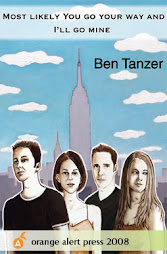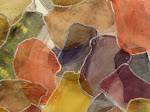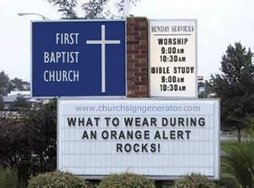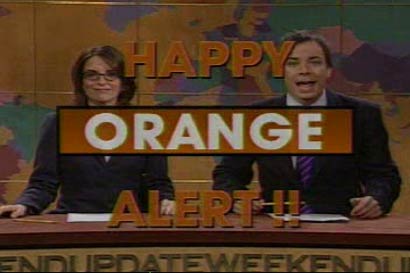
Mickey Hess
"All I ever wanted was to pick apart the day, put the pieces back together my way." - Aesop Rock from Daylight
Now that we, as a society, are nearly thirty years into hip-hop as a genre and culture, we can finally look back with depth and understanding to evaluate the various effects it has had on the people involved. We are beginning to see individuals, who have been raised in and around this culture, move into the spotlight as artists, executives, teachers, parents, Politian's, writers... Basically, hip-hop has become an essential part of every aspect of American culture and the global culture, while adding interesting words, sounds, and concepts at every turn.
One writer focusing his time and understanding on the culture of hip-hop is Mickey Hess. He is the author of the novel "Big Wheel at the Cracker Factory" and several other collections. His shorter work frequently appears on THE2NDHAND.com and McSweeney's. Recently, he was kind enough to answer a few of our questions on hip-hop and his future.
Orange Alert (OA): You recently published a piece of cut-up fiction on the2ndhand.com entitled “HOP-ALONG THE ENTHUSIAST, WHOSE DAD BOUGHT US SIMILAR PANTS”, Can you describe you process for creating this type of fiction as opposed to flash fiction?
Mickey Hess (MH): It’s actually closer to Dali’s paranoiac-critical method than Burroughs’ and Gyson’s cut-ups. Dali would put himself into a sort of trance by staring at something so intensely for so long that it started to look like something else. From the bedroom window of his house in Cadaques, you can see these cliffs that show up as faces in some of his paintings. I spend most of my time staring at words, so sometimes I stare at them long enough that they start to look like other words. It’s all about the shapes of the letters.
Hop-Along was me staring at a boring paragraph I wrote. I usually do this technique with writing I don’t like, but I’ve also used F Scott Fitzgerald’s This Side of Paradise. Stuff like that. My friend Josh actually came up with it in high school.
OA: Who are some of your biggest literary influences?
MH: "I am influenced by every moment of my waking hour" – Lenny Bruce.
OA: How has the internet affected you as an author?
MH: Some of my favorite stories of the past couple years were online, like Monica Drake’s "See You Later, Fry-O-Lator." I like reading things online. I don’t have the book fetish that some people do. I think most books are ugly, and heavy when it comes time to move.
Having my writing on The2ndhand and McSweeney’s has been great for me. I get a lot of emails from people who’ve seen my stories.
OA: I enjoyed your piece “Non-Sequiturs in the Lyrics of Greg Nice”, and I have noticed that a lot of your work has focused on hip-hop, and hip-hop culture. When you have rappers who could be or are published writers (i.e. Saul Williams, Aesop Rock, and Mr. Lif), are these separate interests or is there a correlation between modern literature and hip-hop?
MH: Hip Hop is much more focused on language and story than a lot of other types of music. Look at the level of sensory detail Ghostface builds in a song like "Beauty Jackson," these key adjectives for smells and colors and shapes that makes his songs very literary. Another thing about hip hop is that it really preserves regional and local dialect and slang – it really values the distinctive ways that people talk (Lil Wayne and E-40 are good examples). I don’t see that going on in a lot of places. Hip hop really emphasizes creating your own voice and style, which is something literature could learn from.
Nas and his album Hip Hop is Dead has everybody whining that today’s hip hop is only about fancy cars and shiny bracelets, but it makes them, and Nas, sound like grumpy old farts idealizing the past. They’re only listening to the hip hop they hear flipping through the radio on their way to work.
There’s better hip hop coming out today than ever before, both underground and mainstream, and its just as political, inventive, and important as it ever was. If Nas hates commercialism, let him release his album as free mp3s like Public Enemy did a few years ago. Instead of asking "where are they now" and listing all the forgotten rappers, why doesn’t he put MC Ren or Redhead Kingpin on his album instead of Snoop and Kanye? As far as Greg Nice – his lyrics are as surrealist as my nonsense writing.
OA: What is next for Mickey Hess?
MH: I have a new nonsense zine called Beachcomber’s Abduction, a book called Icons of Hip Hop coming out in June, and one called Is Hip Hop Dead? coming out on Praeger sometime next year. I also have a new collection of stories called Someone Has Plagiarized Faulkner (on gorsky press). It has some nonsense stuff, some stories that bring Nobel laureates like Faulkner and Hemingway and Knut Hamsun to hang out with hip hop stars, and some more straightforward stories about my childhood, my wife, and my iguana.
Bonus Questions:
OA: Top 5 Hip-hop acts of all-time:
MH:
"All I ever wanted was to pick apart the day, put the pieces back together my way." - Aesop Rock from Daylight
Now that we, as a society, are nearly thirty years into hip-hop as a genre and culture, we can finally look back with depth and understanding to evaluate the various effects it has had on the people involved. We are beginning to see individuals, who have been raised in and around this culture, move into the spotlight as artists, executives, teachers, parents, Politian's, writers... Basically, hip-hop has become an essential part of every aspect of American culture and the global culture, while adding interesting words, sounds, and concepts at every turn.
One writer focusing his time and understanding on the culture of hip-hop is Mickey Hess. He is the author of the novel "Big Wheel at the Cracker Factory" and several other collections. His shorter work frequently appears on THE2NDHAND.com and McSweeney's. Recently, he was kind enough to answer a few of our questions on hip-hop and his future.
Orange Alert (OA): You recently published a piece of cut-up fiction on the2ndhand.com entitled “HOP-ALONG THE ENTHUSIAST, WHOSE DAD BOUGHT US SIMILAR PANTS”, Can you describe you process for creating this type of fiction as opposed to flash fiction?
Mickey Hess (MH): It’s actually closer to Dali’s paranoiac-critical method than Burroughs’ and Gyson’s cut-ups. Dali would put himself into a sort of trance by staring at something so intensely for so long that it started to look like something else. From the bedroom window of his house in Cadaques, you can see these cliffs that show up as faces in some of his paintings. I spend most of my time staring at words, so sometimes I stare at them long enough that they start to look like other words. It’s all about the shapes of the letters.
Hop-Along was me staring at a boring paragraph I wrote. I usually do this technique with writing I don’t like, but I’ve also used F Scott Fitzgerald’s This Side of Paradise. Stuff like that. My friend Josh actually came up with it in high school.
OA: Who are some of your biggest literary influences?
MH: "I am influenced by every moment of my waking hour" – Lenny Bruce.
OA: How has the internet affected you as an author?
MH: Some of my favorite stories of the past couple years were online, like Monica Drake’s "See You Later, Fry-O-Lator." I like reading things online. I don’t have the book fetish that some people do. I think most books are ugly, and heavy when it comes time to move.
Having my writing on The2ndhand and McSweeney’s has been great for me. I get a lot of emails from people who’ve seen my stories.
OA: I enjoyed your piece “Non-Sequiturs in the Lyrics of Greg Nice”, and I have noticed that a lot of your work has focused on hip-hop, and hip-hop culture. When you have rappers who could be or are published writers (i.e. Saul Williams, Aesop Rock, and Mr. Lif), are these separate interests or is there a correlation between modern literature and hip-hop?
MH: Hip Hop is much more focused on language and story than a lot of other types of music. Look at the level of sensory detail Ghostface builds in a song like "Beauty Jackson," these key adjectives for smells and colors and shapes that makes his songs very literary. Another thing about hip hop is that it really preserves regional and local dialect and slang – it really values the distinctive ways that people talk (Lil Wayne and E-40 are good examples). I don’t see that going on in a lot of places. Hip hop really emphasizes creating your own voice and style, which is something literature could learn from.
Nas and his album Hip Hop is Dead has everybody whining that today’s hip hop is only about fancy cars and shiny bracelets, but it makes them, and Nas, sound like grumpy old farts idealizing the past. They’re only listening to the hip hop they hear flipping through the radio on their way to work.
There’s better hip hop coming out today than ever before, both underground and mainstream, and its just as political, inventive, and important as it ever was. If Nas hates commercialism, let him release his album as free mp3s like Public Enemy did a few years ago. Instead of asking "where are they now" and listing all the forgotten rappers, why doesn’t he put MC Ren or Redhead Kingpin on his album instead of Snoop and Kanye? As far as Greg Nice – his lyrics are as surrealist as my nonsense writing.
OA: What is next for Mickey Hess?
MH: I have a new nonsense zine called Beachcomber’s Abduction, a book called Icons of Hip Hop coming out in June, and one called Is Hip Hop Dead? coming out on Praeger sometime next year. I also have a new collection of stories called Someone Has Plagiarized Faulkner (on gorsky press). It has some nonsense stuff, some stories that bring Nobel laureates like Faulkner and Hemingway and Knut Hamsun to hang out with hip hop stars, and some more straightforward stories about my childhood, my wife, and my iguana.
Bonus Questions:
OA: Top 5 Hip-hop acts of all-time:
MH:
- Wu-Tang Clan
- Beastie Boys
- De La Soul
- A Tribe Called Quest
- I would have said DOOM for a while, but his recent stuff is less
impressive. Lately Lil Wayne has been claiming he’s the best rapper
alive, and I’m inclined to believe him.
OA: Coffee? If yes, what is your favorite type of coffee and your favorite coffee place?
MH: Atomic Saucer in Louisville, KY.
If you would like more information on how to purchase Mickey's upcoming zine or other publications, you can contact him here.
+by+Nick+Volkert).jpg)





















No comments:
Post a Comment